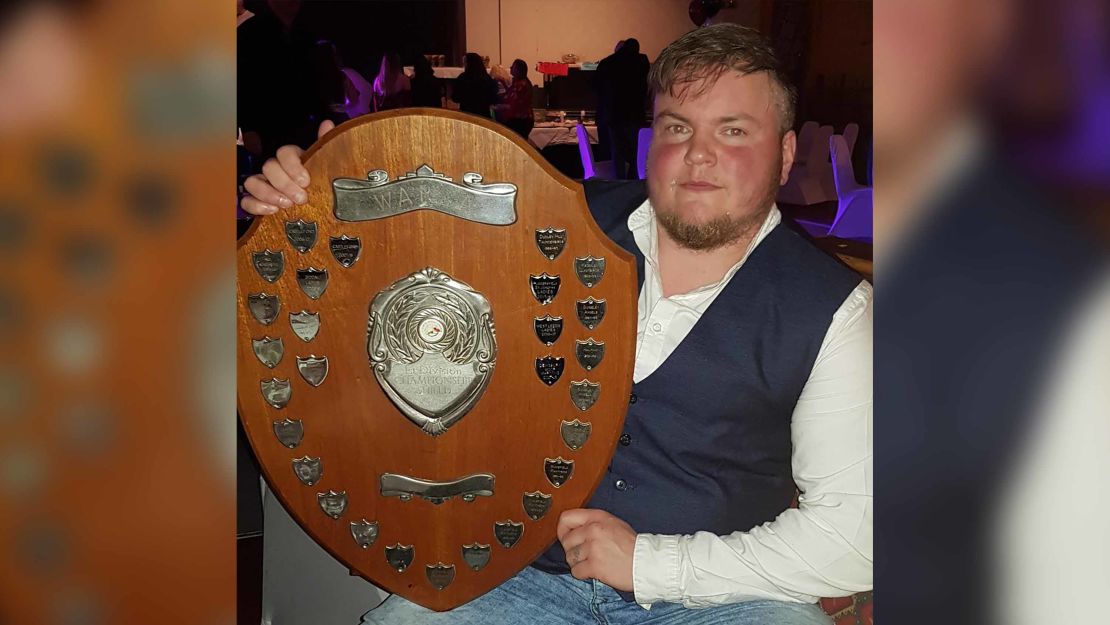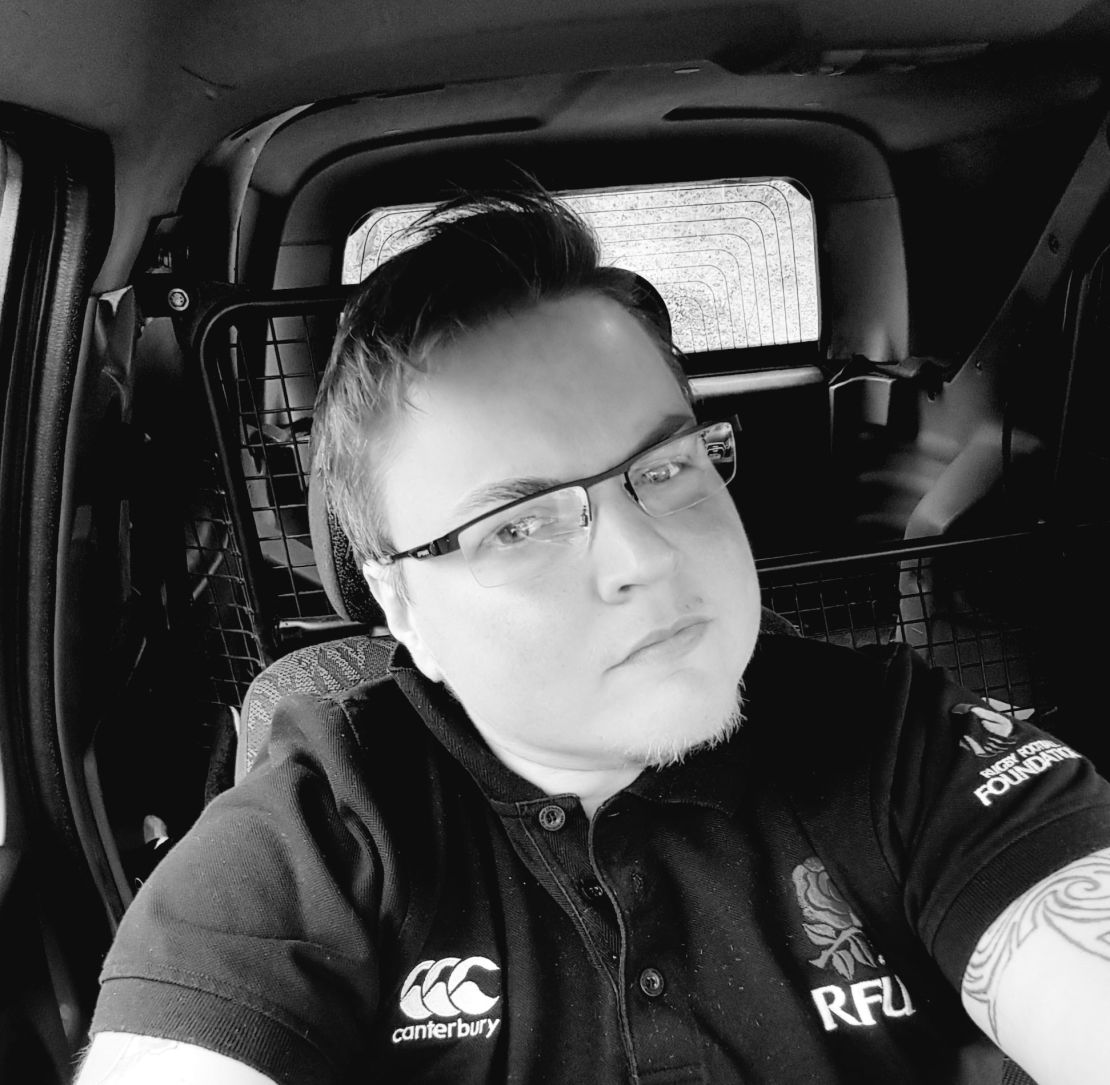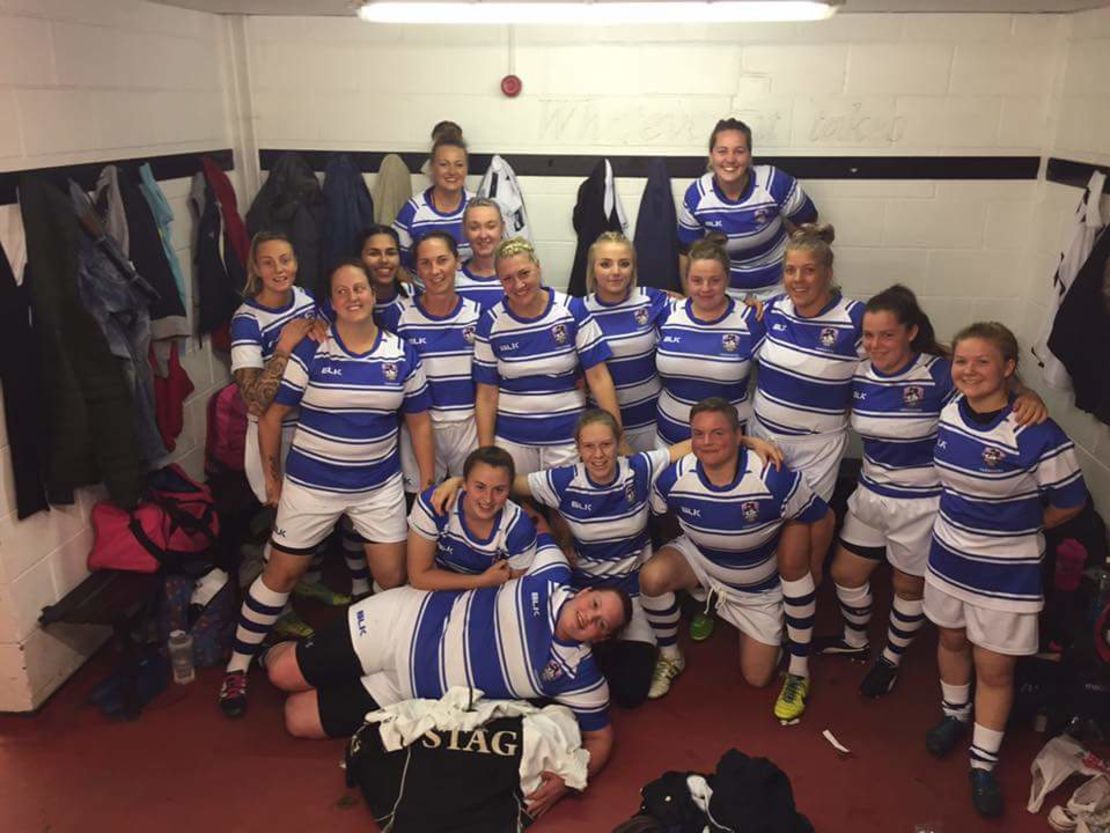Late on a night out in the English city of Leeds, Verity Smith, unsteady on foot and unsure in mind, calls her best friend from a bar. With the din of disco in the background, the then twentysomething says out loud for the first time that she thinks she has been born the wrong sex.
Told to stop being silly, Smith says no more for over a decade. There is a fear of losing friends, of upsetting family, but, crucially, an all-consuming dread that by being true to herself she would be stopped from playing the sport she loves.
The torment took its toll. Smith, then playing in the top division of women’s rugby in England, often cried into the night. There were times when she contemplated suicide.
“It was always there but I just couldn’t say anything because I didn’t want to lose the chance of playing rugby because it’s all I’ve ever had,” the 37-year-old, now in transition, tells CNN Sport.

“My dad died when I was 17 and my mum was sick most of her life and she died when I was in my 20s and so rugby was my family.
“The thought of losing that used to make me think it was better I wasn’t there, then nobody would have to deal with it and nothing could be taken away from me.”
But then society progressed and sport changed and the Rugby Football Union (RFU), the sport’s governing body in England, made clear that anyone wanting to play the game could do so “without prejudice,” giving Smith an opportunity to, he says, “be who I want to be.”
“When the new rugby laws came out I thought, ‘enough is enough.’ One of my mates dragged me to the doctors and wouldn’t let me out,” says Smith, laughing.
Physically still a female, Smith has been injecting testosterone for 18 months. Having gone through the menopause early and suffered with polycystic ovarian syndrome, he has been taking the hormone since he was 19 years old but injecting it has made its effects stronger, allowing Smith to grow a full beard.
READ: Transgender jockey inspired by Caitlyn Jenner

His appearance, he admits, has occasionally made playing rugby “a nightmare.”
“Because I’ve got a full beard on the ladies team but I’m still physically female, it makes things a bit more complicated,” says Smith, who plays both rugby union and league for Rotherham Ladies and Dewsbury Moore respectively.
“We’ve played a few small-minded teams.
“I’ve been escorted off the pitch, outed on the internet, assaulted and pinned down and had blood spat in my mouth and the police wouldn’t do anything about it. That’s been the lowest point for me, just being dragged off the pitch and not being able to walk out there with the rest of my team having not done anything wrong other than be myself.
“I’ve played a game where even match officials have taken the mickey and it’s damn right rude.
“I’ve been playing for 26 years so I’m never going to play if I think I’m dangerous. There are bigger and stronger players playing, it’s just different techniques.”
Smith is one of three transgender players who turn out for Rotherham Ladies.
The manager of the south Yorkshire team, which was formed only last year, will explain the situation to the opposition before kick-off. Some have refused to play but Smith says his teammates have “always been great.”
“There’s no question that you can ask that somebody hasn’t already asked,” he jokes. “I get bombarded by my teammates, their kids. Most of the time it’s around your anatomy.”
Smith didn’t specifically tell any of his teammates or work colleagues that he was in transition.
“I let them put two and two together to make four,” says Smith, an administrator who works in the Yorkshire market town of Huddersfield.
“I changed my gender on Facebook and everyone clicked. I’ve not really come out officially at work but they’ve changed my details at HR.”
As a child, Smith never played with dolls or wore dresses. While his sister was dressed in frills, Smith was in jeans and trainers.
“My mum always wanted proper little girls and I never was,” he says, adding that he was fortunate his parents allowed him to be whoever he wanted to be.
READ: Why it matters that transgender athletes have run Boston Marathon

For years Smith identified as a gay woman and married a woman before getting divorced in 2010.
“A lot of the girls I was playing rugby with were gay and I thought maybe I was because I’ve always felt more masculine. I thought that must be who I am,” he explains.
“When I told my grandma and said I don’t want my chest anymore, she just looked at me and said, ‘do I call you Fred now or what?’
“She just wasn’t bothered. I’ve thrown everything at her. I’ve come out as gay, I’ve come out as a gay man, and a trans and, considering I was married to a girl and dating girls all my life, she’s been brilliant.’
Smith is on a waiting list to undergo what would be his first surgical reassignment procedure. He feels no anxiety or nerves about what lies ahead.
“My body has already changed. It’s been gradual,” says Smith, who will continue to be known as Verity.
“I started noticing more facial hair, everybody mentioned that my voice was changing. I’m broader, my face has changed a little bit, I’m not as rounded in the face anymore.
“I’ve been living as a guy and changed all my details.
“Hopefully the next stage is consultation for having chest surgery. That will be one operation I will be looking forward to because at the moment I’ve a full beard and a chest.
“I have to wear women’s fitted rugby shirts. We’ve had numerous arguments about me taking team photos over the years because I didn’t want to wear a tight-fitted top.”
Smith first came to the wider attention of the rugby community when he came out in a magazine last month. The reaction to the article, he says, has been largely positive and many people who have gone through the same experiences have been in touch.
“I’ve had a social worker messaging me to talk about a teenager playing in a safe environment,” he says.
Had the RFU’s policy not changed to allow each gender case to be reviewed individually, Smith acknowledges he would not have dared change.
But the RFU’s policy on adult transgender players is under review, which is causing Smith some anxiety. Once agreed by the International Olympic Committee and World Rugby, it will be brought in line with the Olympic policy.
“I’d have struggled opening my mouth anytime soon if the laws were as they were,” says Smith, who is currently talking to safeguarding officers in the hope that education will lead to wider acceptance.
“It’d be good to have LGBT safeguarding officers in place so young players and teams can approach if they’ve got questions or concerns, rather than kicking off on the pitch on matchday because they don’t know the risks,” he says.
Smith has not played rugby since a ruptured disk caused paralysis in his left foot. Health permitting, Smith intends to return to the field.
Visit CNN.com/sport for more news and features
“At the minute it looks like I’m going to have another spinal operation, which I’m gutted about, because I’ve been offered a place on a men’s team and I wanted to prove that you can play both and can successfully transition, just so kids have something to look up to.
“I’ve got absolutely no regrets. My only regret is that I didn’t come out earlier and had the life I could’ve had.”
